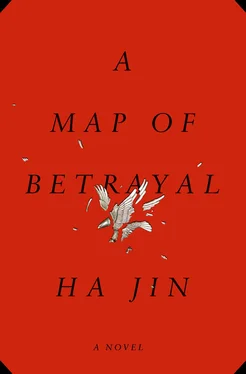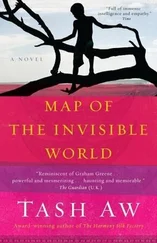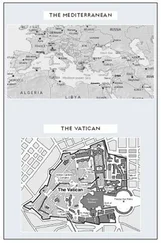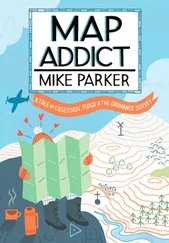By the spring of 1953 Gary had been in Okinawa for three and a half years. He had learned to drive and bought a jeep from an officer who had returned to Hawaii. Sometimes he drove along the military highway to a beach spread with white sand or to a bay lined with red pines and banyan trees, where he’d sit alone, breathing the briny air, lost in his thoughts. He’d begun to smoke and liked American cigarettes, particularly Chesterfields and Camels. In the summer he would don a perforated straw boater, but he wore a felt derby in the other seasons. His hats, fine suits, and patent-leather shoes made him appear a bit dashing, though he always gave off a solitary air and the impression of being absentminded — something of a loner who was careful about his appearance but didn’t know how to blend in. By now his homesickness had grown into a kind of numbness, a dull pain deep in his heart. He felt its heaviness constantly but took it as a sign of maturity, as though he at last had the fortitude needed for fulfilling his mission.
The semimilitary life gave him a sense of discipline, while his daily work helped him keep at bay the memories of his family and homeland. During the past two years he had also developed a love for popular American singers, above all Hank Williams. He borrowed the records from the radio station’s library and played them on a phonograph with a trumpet speaker that he’d bought secondhand. He learned some of the lyrics by heart and couldn’t help letting the tunes reverberate in his mind. When strolling on a beach or along a winding trail, he would croon to himself, “Well, why don’t you love me like you used to do? / How come you treat me like a worn-out shoe?” Or with a measure of cruel self-mockery, “No matter how I struggle or strive / I’ll never get out of this world alive.” Or touched by a fit of self-pity, “As I wonder where you are / I’m so lonesome I could cry.” Those songs would bring tears to his eyes as though he were a jilted lover whose moaning and pining didn’t make any sense to others. Yet he would force himself to hum them as a way to toughen himself.
He’d been devastated in late October 1950, when the Chinese army ambushed and mauled the U.S. troops east of the Yalu. Hearing the news, he hurried out of his office and stood behind an Indian almond tree in the backyard, hiding his face in the glossy leaves while tears streamed down his cheeks. He pressed his forehead against the damp trunk and stayed there for almost an hour. He could not explain why he reacted so viscerally. By instinct he must have sensed that because the two countries had virtually gone to war, he might become more valuable to China, which would, he was sure, assign him dangerous tasks. In other words, he might have a long spying career ahead. He hated to be put in such a position and felt marooned, but he kept reminding himself to be more patient. Indeed, every worthy spy must have iron patience, being capable of taking refuge in solitude while biding his time. Ultimately everything would depend on how much he could endure.
The Chinese army’s initial victories didn’t hearten Gary, because he knew China was a weak country and couldn’t fight the war for long without the Soviets’ backing. When news came of the horrendous casualties the Chinese had suffered, Gary suspected that his countrymen had been used as cannon fodder for the Russians. His suspicion was verified later on. Through translating articles and reports, he chanced on information unknown to the public. The Soviets had provided a great quantity of weapons for the Chinese troops in Korea, but Stalin gave them only limited air cover east of the Yalu, just down to the Ch’ongch’on River. Consequently, most of the Chinese and North Korean army units were exposed to the U.S. air attacks and dared not move around in daylight. Only by night could their vehicles get on the road. Still, American bombers devastated the Communist forces. That was why Lin Biao, the most brilliant and experienced of Mao’s generals, foreseeing this horrifying slaughter, had refused to take command of the Chinese army in Korea, and Beijing had no choice but to appoint Marshal Peng Dehuai the commander.
Summer in Okinawa was sultry in spite of the cool breeze coming from the ocean at night, but this year Gary didn’t have to put up with the heat and humidity of the dog days again. In late July he was dispatched to Pusan to help interrogate the POWs held by the UN side. He was pleased about the assignment, believing that once in Korea, he might be able to find a way to contact his superiors back in China. Also, he was eager for a change. The armistice had just been signed, and no more large-scale fighting would be likely, because every party involved seemed too exhausted to continue. The war had reached its tail end. Gary boarded a C-119 one early-August morning and landed in Pusan four hours later.
There were too many POWs for the UN personnel to interrogate. From the Chinese army alone, more than twenty-one thousand men were held prisoner, mostly captured in the spring of 1951. The Chinese had been mangled severely in their fifth-phase offense, and a whole division, the 180th, was liquidated. That forced North Korea and China back to the negotiation table with the UN. But the talks dragged on and on owing to the thorny issue of the POWs. Many of the Chinese prisoners had served in the Nationalist army before (they’d been caught and then recruited by the Communists) and dreaded returning to the mainland because they’d been instructed never to surrender in Korea, even at the cost of their lives. Fearful of punishment, they wanted to go to Taiwan and rejoin the Nationalist army there. Chiang Kai-shek was badly short of soldiers, so he welcomed these men, whose return to their former ranks would also make the Communists lose a battle on the propaganda front. So some Nationalist officials flew in to persuade more Chinese prisoners to sail for Taiwan.
Gary served as the interpreter when the top U.S. prison officers received the Nationalist emissaries, who were not allowed to enter the jail compounds. At most they could meet the POW representatives with barbed-wire fences between them. Nevertheless, they managed to deliver to the prisoners Chiang Kai-shek’s personal presents: cigarettes, playing cards, toffees, books, musical instruments, and a wool overcoat for every man willing to go to Taiwan. Though Gary was not a POW, the Nationalist delegates gave him some presents as well, including a trench coat and a canvas rucksack.
Gary stayed in a makeshift cottage in the POW collection center on the outskirts of Pusan. The ocean was within view, and large ships in the harbor loomed like little hills in the morning mist. On a fine day fishing boats would bob on the distant swells. The water was uneven in color, some areas yellow and some green. To the north, outside the immense prison camp, spread endless rice paddies, some unsown, choked by algae and weeds. The bustling city was full of refugees. All kinds of Korean civilians had swarmed here and put up temporary shelters; even the nearby slopes were dappled with patches of tents and shacks built of straw, plywood, and corrugated iron. Gary could see that the soil here was rich and the climate congenial. He saw giant apples and pears for sale, much bigger than those in China, and he couldn’t help but imagine how good this place could be in peace. Fluent in both English and Mandarin, he was appreciated by his superiors and peers. He also mixed well with the officers from Taiwan who were here to help the UN with the prison’s administrative work. Most of these officers would stay just a few months. Gary often sat at their tables at mealtimes and also shared cigarettes and beer with them.
One day at lunch, as Gary was eating a Salisbury steak with a dill pickle, Meng, a broad-shouldered Taiwanese officer in his mid-thirties, came and sat down across from him. The man’s bold eyes shone with excitement while he gave a cockeyed grin. He said to Gary under his breath, “Mind you, I’m having low back pain.”
Читать дальше











